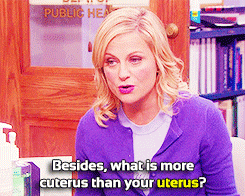Many of us are aware of the baggage period brings with it every month. First-hand experience or not– seeing our partner/ family member/friend combat through their cramps is enough exposure. People expect period pain to be “dealt with” in most cases and aren’t attentive. And Polycystic Ovarian Syndrome (PCOS) is no exception. It could be one of the contributors adversely affecting period-health. Culture plays a part in why many women who suffer from PCOS don’t give it the attention it deserves.
Though PCOS causes no imminent danger to life, it can be taxing to deal with. Getting on the weighing scale is rarely easy and constant worry about hair being stuck to the comb is inevitable.
With 1 in 5 women being diagnosed for the syndrome, we can’t help wonder if there will be a cure soon.
Nevertheless, awareness is important for women, men, or anyone who knows women. It’s difficult to determine who among your friends/family may be dealing with possible symptoms or diagnosis.
According to Healthline “Many women have PCOS but don’t know it. In one study, up to 70 per cent of women with PCOS hadn’t been diagnosed.”
“It’s only in the last year that I have heard about PCOS from my female friends. From what I can tell, not a lot of people even know that this is something they’re going through. I really see how it affects them not only physically, but also mentally, which is why the dialogue is important. I think the more I read about it, the more I can empathise for women in my life and be there for them” says Sidharth, an MBA student.
Today, there is an open dialogue around the prognosis. From celebrities to influencers, women are actively talking about this, and pop culture has acknowledged the struggle with shows like Pushpavalli and This is Us.

WHAT IS PCOS?
As quoted in helloclue “Polycystic Ovary Syndrome (PCOS) is a condition in which certain hormones are out of balance. These imbalances typically show up as irregular menstrual cycles, a higher level of androgens (a type of hormone including testosterone) in the body, and small cysts in the ovaries. PCOS can cause symptoms, including excess facial and body hair, acne, and mood changes. It can also make it difficult to become pregnant, and may significantly harm a person’s overall health if left untreated.”
Dr Mekhala Iyengar is a gynaecologist working closely with PCOS patients. She says “while there are no conclusive studies; genetics, insulin resistance and an excessive weight gain are a few possible reasons for PCOS.”
PCOS affects each woman very differently as it comes with varied symptoms. A one-size-fits-all approach doesn’t always work.
Looking back at my journey with PCOS, it started by taking birth control pills to get my hormones when I was in the ninth grade. For an irresponsible 15-year-old, the side effects were almost impossible to deal with. It took me years of hits to come up with a feasible plan of action. Like with any small bump on the road, if you drive over it enough times, you almost forget that it exists. So I reached out to other women with varied experiences who had some things to say.
Tanya Toshali a 23-year-old Research Assistant who was diagnosed with PCOS when she was 16 says “I’ve tried everything- medicine, exercise, diet, Ayurveda, praying to all the gods! My biggest problem is pain. My periods are so painful that some months I can’t even get out of bed. Asking for time off is tough because it makes you look weak, so I can’t even do anything about it. I don’t get it, every second girl is suffering, and yet, there’s little research done on it”
Dr Iyenger says “there has been a huge shift in people’s lifestyles today and that seems to be a contributing factor to all of this. A good, balanced diet and a workout regime can go a long way. But at the same time, in some cases, medicines must be prescribed to get your hormones under control, so make sure you consult your physician too.”
A 22-year-old advertising professional who has been on PCOS medication for the past two years reckons “I love working out, but I hate comparing my progress with the people around me because it’s very demotivating. I gain weight very quickly and shedding it means twice the effort in the gym. I have a terrible relationship with food as well because I keep trying diets that keep my PCOS in check”.
“I never had the horrific cramping or erratic periods. The only thing that was really bad for me was the excessive hair-fall. Plus, anytime I’m stressed in life, which is inevitable, it just pops up. It can be annoying because you’re already trying to manage it” says Tanya Dixit, a film professional. She has been living comfortably with PCOS for the past few years.
There are a lot of tips and tricks to help you combat PCOS. But at the end of the day, what you read here (or anywhere else) may not work for you. Getting the diagnosis and speaking with a doctor is imperative.
It’s not all bad news, though. Now you’re a part of a great group of supportive women who want to rant about it just as much as you do.


